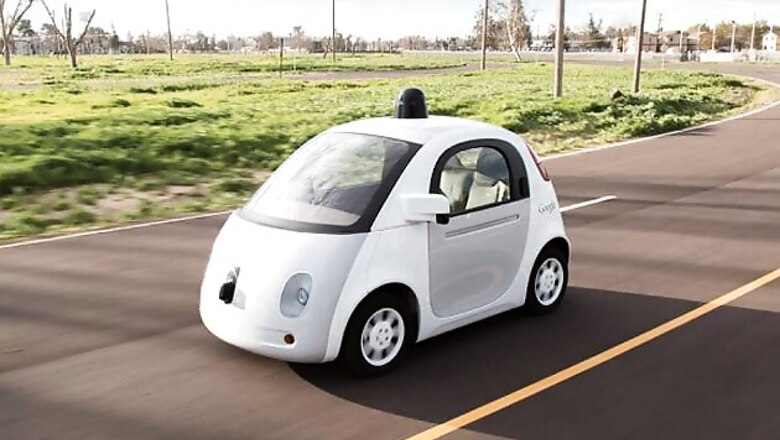
views
This year's CES has been the biggest in history in terms of its focus on the automobile and its future in an increasingly connected world whether as autonomous form of transport or as an element of the internet of things.
"Our cars are already becoming an integral part of the internet of things," said BMW board member Klaus Fröhlich. "Customer wishes are changing. Drivers expect to be able to integrate vehicles seamlessly into their life -- for example, their smartphone or their connected home."
However, even though more than 100 car companies, from manufacturers to suppliers, were showcasing their latest visions and innovations, everything is very much in its conceptual stage. Especially in terms of autonomous driving.
"Up to now, our industry has measured on-road reliability of autonomous vehicles, in the millions of miles, which is impressive. But to achieve full autonomy we actually need reliability that is a million times better. We need trillion-mile reliability," Dr. Gill Pratt Toyota Executive Technical Advisor said.
That's because a car stays in use for on average 10 years, is driven 10,000 a year and, in the case of Toyota, is sold in batches of 10 million a year.
"Society tolerates a lot of human error. But we expect machines to be much better," continued Pratt who is leading a team focused on artificial intelligence to address this problem.
And as the car becomes more like a supercomputer on wheels, what will happen to the relationship with the driver?
Evolving relationship between user and machine
"The future belongs to the digital car in which people are the point of focus," said Daimler board member Prof. Dr. Thomas Weber, "Whether we are talking multimedia, assistance systems or autonomous driving -- it is becoming more and more about how drivers and other vehicle occupants experience networking both in and outside of the vehicle."
Some companies have reimagined the car as a rolling sitting room where occupants will be able to stretch out and relax, but such concepts are racing too far ahead.
Volvo realizes that people still need a point of reference and a level or reassurance. It polled 10,000 people around the world ahead of CES to understand what drivers want from the car of the future and the top response was to stay in control.
"People have told us that they need to feel in control and have the choice of when to delegate driving to the car. Today, that need is ultimately fulfilled with the presence of a steering wheel," said Volvo's Anders Tylman-Mikiewicz, "Therefore, a steering wheel is necessary until those needs change."
So the steering wheel stays but wing mirrors are going. All concept cars from all car companies revealed this week had one thing in common: digital cameras where the door mirror would have been.
As well as providing a wider field of view that eliminates blind spots, small cameras reduce drag and improve fuel efficiency.


















Comments
0 comment